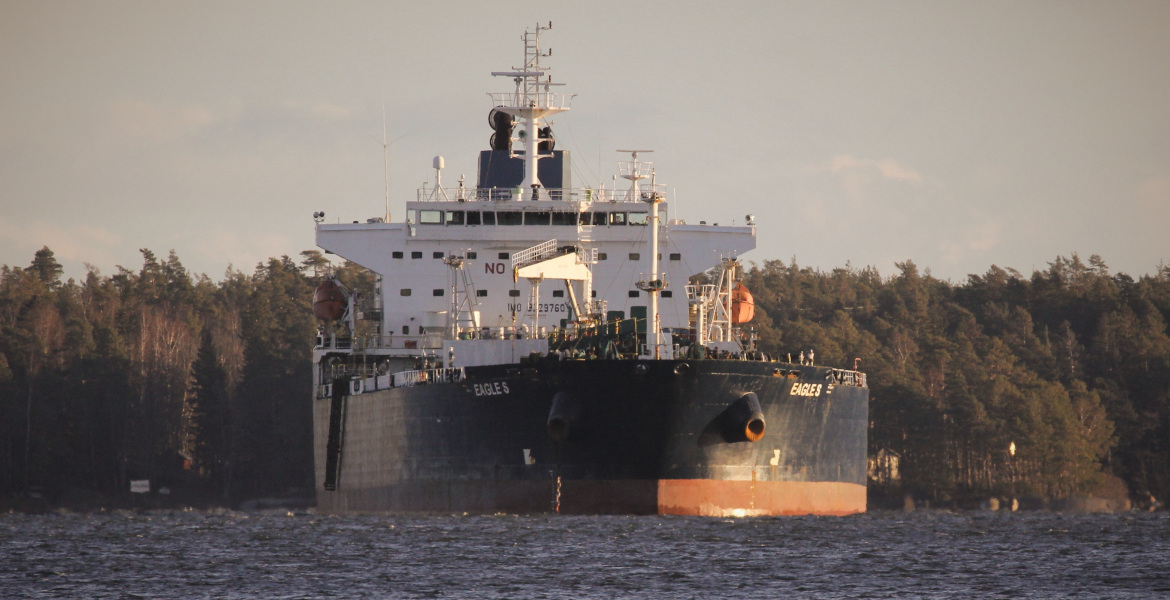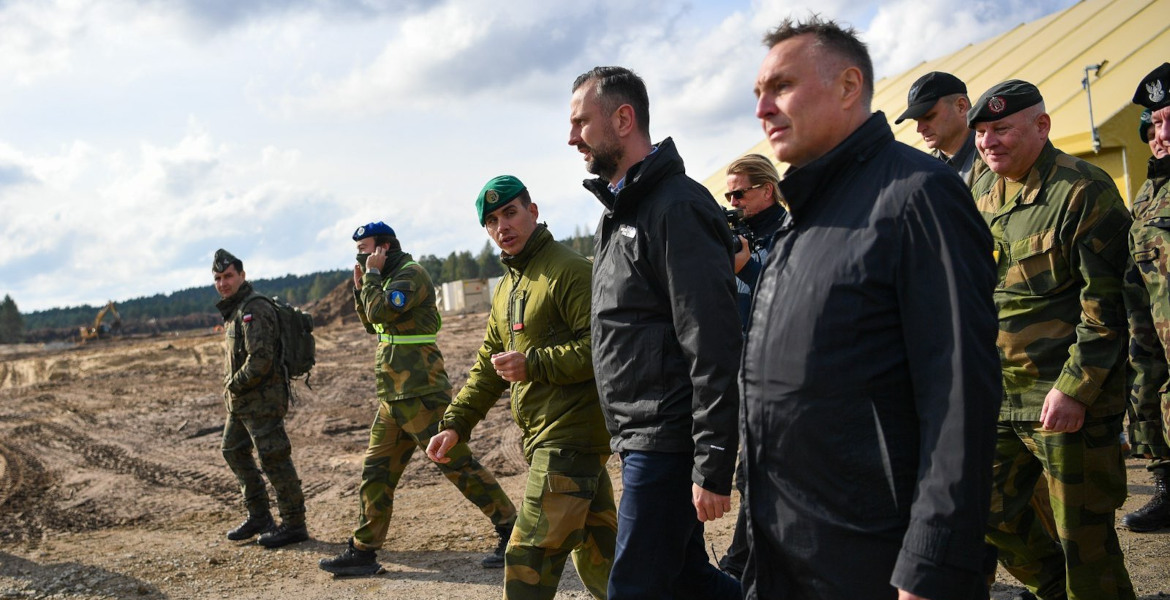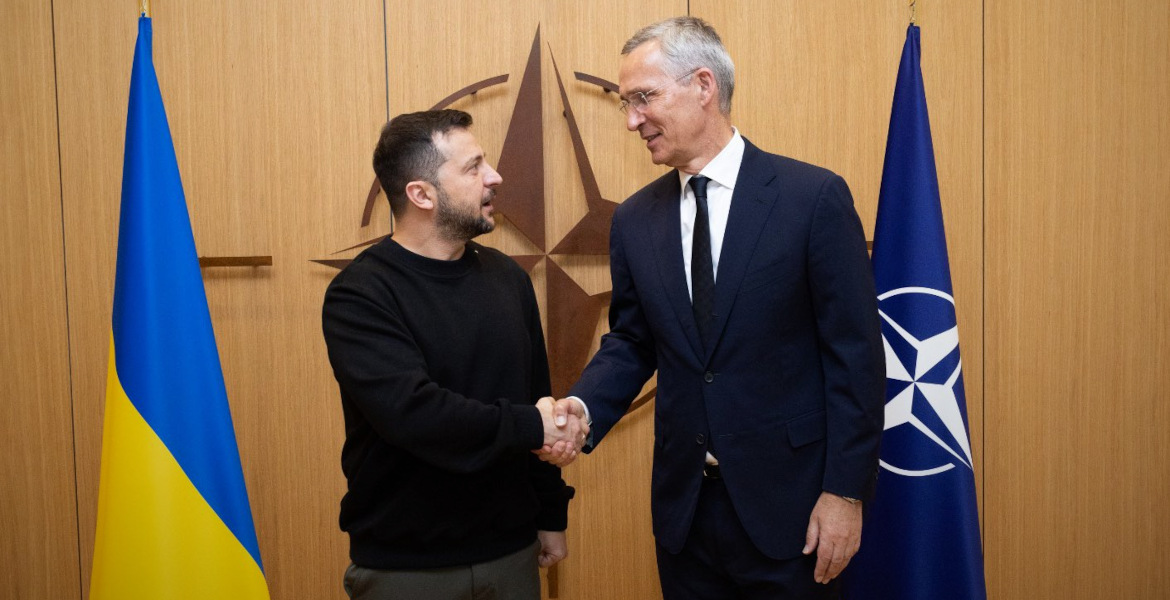The Swedish Civil Contingencies Agency (MSB) has issued a stark warning, urging citizens to prepare for potential terror attacks, deadly pandemics, airstrikes – and even nuclear war.
Despite the apocalyptic tone, which suggests that full-scale world war may be imminent, Minister Carl-Oskar Bohlin insists that the purpose of the information is actually to “create calm”.
MSB, the Swedish Civil Contingencies Agency, has released a new version of its emergency preparedness brochure, If Crisis or War Comes, which is now being sent out to all Swedish households. The document is marked by a sense of impending doom and a bleak outlook on the near future.
Notably, the new brochure is significantly thicker than the previous one from 2018 (31 pages compared to 20). MSB claims this is because “the global situation has deteriorated significantly since the earlier brochure was distributed”.
“War is ongoing in our surroundings, extreme weather is becoming more common. Terror threats, cyberattacks, and disinformation are being used to harm and influence us. Sweden has also joined NATO”, it states, adding that everyone must therefore “stand together and take responsibility for our country”.
The agency also warns that cyberattacks, influence campaigns, terrorism, and sabotage “can occur at any time, and much is already happening here and now”, declaring to the Swedish people that they cannot take “their freedom for granted” and must show “the will and courage to defend our open society – even if it involves sacrifices”.

Everyone must “mobilize”
It also highlights Sweden’s NATO membership as an essential part of the country’s resilience against alleged external threats, asserting that “the purpose of the alliance is for member states to be so strong together that it deters others from attacking us”.
Swedes are told that war or an acute threat of war could be expected very soon and that the whole society must then “mobilize to face an aggressor and to ensure that the most essential aspects of society function”.
“Total defense duty applies to all Swedish citizens, both those living in Sweden and abroad… In the event of heightened preparedness, you are required to report to the location specified in your wartime placement order”, it emphasizes.
MSB further urges Swedes to learn how the various warning systems and alarms function, including how to differentiate between an air raid alarm and a preparedness alarm.
“Go immediately to the nearest bomb shelter, basement, or other protected area. You are better protected indoors than outdoors, especially in a room without windows”, it advises.
Nuclear and biological weapons
The agency also claims there is a risk that Sweden could be attacked with nuclear weapons and advises Swedes that “in the event of an attack with nuclear, chemical, or biological weapons”, they should “seek shelter in the same way as during an air raid” – preferably in a bomb shelter.
“After a few days, radiation levels will have decreased significantly”, it reassures.
“Bomb shelters protect against shockwaves and shrapnel from bombs. They also protect against shockwaves and heatwaves from nuclear weapons. Bomb shelters provide better protection than other places against radioactive fallout, gases from chemical weapons, and biological agents”, it further emphasizes.
Those without access to a bomb shelter are instead advised to seek out basements, garages, and underground subway stations – or to hide in tunnels or behind walls. If unable to reach such a location, people are instructed to crouch “in a trench or ditch” and remain there until authorities declare the danger is over.

Share only “reliable sources”
According to MSB, Sweden is not only at risk of nuclear war but also faces an urgent threat from propaganda and disinformation.
“Foreign powers and other actors outside Sweden use disinformation, deception, and propaganda to influence us. Attempts to influence occur daily, primarily online and on social media. The goal is to create distrust and undermine our will to defend ourselves”, it states.
Psychological warfare is said to occur through the spreading of stories that are “false or partially true but taken out of context” or through fake video clips, voice recordings, and images. Hostile actors are also claimed to wage war against Sweden by “stirring emotions around an issue or event to make us anxious or suspicious of one another”.
This type of attack on Sweden is best countered by citizens remaining vigilant and sharing information only from what is described as “reliable sources”. The brochure does not explicitly specify which sources it considers reliable, apart from urging people to seek “verified information from authorities”.
“Extreme weather” threatens Sweden
Cyberattacks and terrorist attacks are highlighted, with the brochure declaring that “terror attacks and armed violence can target people or critical infrastructure such as electricity supply and transportation” – and here, too, citizens are urged to be ready to flee and seek shelter if they witness an attack.
“Extreme weather” is also said to threaten the Swedish population, with MSB claiming that “extreme weather such as torrential rain, flooding, and heatwaves is becoming more common” and that “the risk of natural disasters such as landslides and forest fires is increasing”.

“If a contagious disease begins to spread, authorities will issue advice on how to protect yourself and others… Help reduce the spread by following the authorities’ recommendations”, it states.
Attracts international attention
The brochure also contains more everyday tips on home preparedness and emergency planning, such as how to stop bleeding and how to prepare for extended power outages. However, it is the apocalyptic tone that has drawn strong reactions.
Swedish authorities urging their population to prepare for potential nuclear attacks has also attracted international attention, with Britain’s The Times writing that Sweden appears to be preparing for a “global apocalypse”, while France’s Le Parisien merely notes that Swedes are being urged to prepare for war.
Germany’s Focus claims that the entire brochure is imbued with a “doomsday atmosphere”, and several other media outlets have expressed surprise over its contents and wording.
Save the Children, in turn, warns that the alarmist tone risks causing fear among children, while others point out the difficulty of focusing on daily life while being instructed to prepare for nuclear attacks.

“Already happening here and now”
Carl-Oskar Bohlin (M), Minister for Civil Defense, states that the purpose of the brochure is to “inform” and “create calm” and maintains that the threat of war against Sweden is not immediately imminent.
On the other hand, Bohlin adds, influence campaigns, terrorism, and sabotage “can occur at any time”, and much of it is said to be “already happening here and now”.
The minister further states that Swedes should not “run into the woods and cut themselves off from the rest of society”, but instead focus on being prepared, taking responsibility, and showing solidarity with the rest of the community.






